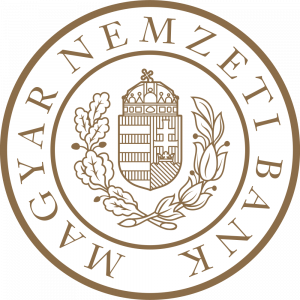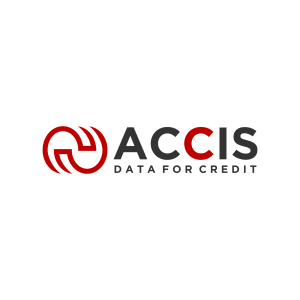About BISZ Plc.
BISZ Zrt. aims to provide reliable and up-to-date credit information to players in the Hungarian financial sector to facilitate prudent lending.
BISZ Zrt. operation objectives
The databases managed by BISZ Zrt. comprise a system operated jointly by over 450 financial institutions in Hungary. The data submitted by financial institutions are managed in compliance with applicable law. These databases provide credit information to BISZ Zrt.’s contracted partners to support the processes of credit assessment.
The self-contained databases operated by BISZ Zrt. serve the following purposes:
- a more differentiated assessment of creditworthiness,
- wider access to lending,
- a better understanding of actual debt obligations,
- an opportunity to build a positive credit history,
- safer operation of data providing financial institutions,
- contribute to the reduction of credit risk,
- support for the avoidance of abuse relating to the free cash withdrawal option.
BISZ Zrt. operates to meet the above requirements on a continuous basis and to a high standard. We have also set the important objective of continually improving the quality of our services, which is why we operate an integrated quality management and information security system in compliance with the requirements of ISO 9001 and ISO/IEC 27001 standards.
Our history
The evolving two-tier banking system brought about the requirement for banks to create a credit information database that may be used to reduce the risk in lending. On 15 February 1994, eight banks established Bankközi Informatika Szolgáltató Rt. (Interbank IT Services), a private limited company, for the development of the credit information database.
The business subsystem of the Interbank Debtor and Credit Information System (IDCIS) was launched on 28 June 1995, containing full records on the credit agreements of businesses. By mid-1996, all banks, savings cooperatives and credit unions operating at the time had subscribed to the Service. Data submission to the system was continuous, and by the end of 1996 the records had become virtually complete.
Effective as of 1 January 1998, the amended Act on Credit Institutions and Financial Enterprises (Credit Institutions Act) significantly widened the group of IDCIS users, while also enabling the launch of the consumer subsystem of the IDCIS, which became fully operational in 1999.
Since 2002, the business subsystem has contained negative records on insolvent businesses, and also negative records on businesses violating their card acceptance agreements. In the same year, the subsystem registering natural persons was appended with records on bank card fraud.
In May 2003, the shareholder financial institutions sold their shares to GIRO Elszámolásforgalmi Rt. (GIRO Clearing), a company also owned by financial institutions, making GIRO Rt. the sole shareholder of BISZ Rt.
Effective as of 1 January 2006, the Credit Institutions Act set out detailed provisions for the rules concerning the Central Credit Information System (KHR). As a consequence of legislative changes, in 2006 we adopted the name BISZ Központi Hitelinformációs Zártkörűen Működő Részvénytársaság (BISZ Central Credit Information Plc.), abbreviated in Hungarian as BISZ Zrt.
In September 2010, BISZ Zrt. launched a new service by the name of KHR-Early Warning (KHR-EW), designed to provide fast and authentic information on changes to the credit positions and repayment capacities of business debtors.
Pursuant to Act CXXII of 2011, BISZ Zrt. developed a version of KHR to support the full processing of consumers’ credit data by early 2012. In the first half of 2012, reference data providers submitted data on more than 8 million credit agreements to the system. Third parties may access positive credit data only if the customer has consented to such access.
As of July 2014, GIRO Zrt. has been solely owned by the National Bank of Hungary, as a result of which BISZ Zrt. has also become a publicly owned company.
The central register of statements allowing free cash withdrawals became operational on 1 December 2014, thus enabling banks and savings cooperatives to verify that each consumer uses the option to withdraw cash, free of charges and fees on a maximum of two occasions per month, for up to HUF 150,000 with only one financial institution.
The legal instrument for “personal bankruptcy” was established by Act CV of 2015. The KHR has recorded data on individuals entering into debt consolidation procedures since September 2015.
(October 2017)
Board of Directors
Chairman:
- Barnabás Virág
Members
- János Gerendás
- dr. Gyula Sebestyén Kardos
- Dávid Frigyes Kutasi
- dr. Miklós György Luspay
- Viktor Nagy
- Bertalan Vajda
Supervisory Board
Chairman:
- Dr. Csaba Kandrács
Members
- Gergely László Baksay
- Dr. Barna Fömötör
- Gábor Nagy
- Tamás Nagy
- Milán Mészárovics
Annual reports
(July 2023)
BISZ Zrt. operation objectives
The databases managed by BISZ Zrt. comprise a system operated jointly by over 450 financial institutions in Hungary. The data submitted by financial institutions are managed in compliance with applicable law. These databases provide credit information to BISZ Zrt.’s contracted partners to support the processes of credit assessment.
The self-contained databases operated by BISZ Zrt. serve the following purposes:
- a more differentiated assessment of creditworthiness,
- wider access to lending,
- a better understanding of actual debt obligations,
- an opportunity to build a positive credit history,
- safer operation of data providing financial institutions,
- contribute to the reduction of credit risk,
- support for the avoidance of abuse relating to the free cash withdrawal option.
BISZ Zrt. operates to meet the above requirements on a continuous basis and to a high standard. We have also set the important objective of continually improving the quality of our services, which is why we operate an integrated quality management and information security system in compliance with the requirements of ISO 9001 and ISO/IEC 27001 standards.
Our history
The evolving two-tier banking system brought about the requirement for banks to create a credit information database that may be used to reduce the risk in lending. On 15 February 1994, eight banks established Bankközi Informatika Szolgáltató Rt. (Interbank IT Services), a private limited company, for the development of the credit information database.
The business subsystem of the Interbank Debtor and Credit Information System (IDCIS) was launched on 28 June 1995, containing full records on the credit agreements of businesses. By mid-1996, all banks, savings cooperatives and credit unions operating at the time had subscribed to the Service. Data submission to the system was continuous, and by the end of 1996 the records had become virtually complete.
Effective as of 1 January 1998, the amended Act on Credit Institutions and Financial Enterprises (Credit Institutions Act) significantly widened the group of IDCIS users, while also enabling the launch of the consumer subsystem of the IDCIS, which became fully operational in 1999.
Since 2002, the business subsystem has contained negative records on insolvent businesses, and also negative records on businesses violating their card acceptance agreements. In the same year, the subsystem registering natural persons was appended with records on bank card fraud.
In May 2003, the shareholder financial institutions sold their shares to GIRO Elszámolásforgalmi Rt. (GIRO Clearing), a company also owned by financial institutions, making GIRO Rt. the sole shareholder of BISZ Rt.
Effective as of 1 January 2006, the Credit Institutions Act set out detailed provisions for the rules concerning the Central Credit Information System (KHR). As a consequence of legislative changes, in 2006 we adopted the name BISZ Központi Hitelinformációs Zártkörűen Működő Részvénytársaság (BISZ Central Credit Information Plc.), abbreviated in Hungarian as BISZ Zrt.
In September 2010, BISZ Zrt. launched a new service by the name of KHR-Early Warning (KHR-EW), designed to provide fast and authentic information on changes to the credit positions and repayment capacities of business debtors.
Pursuant to Act CXXII of 2011, BISZ Zrt. developed a version of KHR to support the full processing of consumers’ credit data by early 2012. In the first half of 2012, reference data providers submitted data on more than 8 million credit agreements to the system. Third parties may access positive credit data only if the customer has consented to such access.
As of July 2014, GIRO Zrt. has been solely owned by the National Bank of Hungary, as a result of which BISZ Zrt. has also become a publicly owned company.
The central register of statements allowing free cash withdrawals became operational on 1 December 2014, thus enabling banks and savings cooperatives to verify that each consumer uses the option to withdraw cash, free of charges and fees on a maximum of two occasions per month, for up to HUF 150,000 with only one financial institution.
The legal instrument for “personal bankruptcy” was established by Act CV of 2015. The KHR has recorded data on individuals entering into debt consolidation procedures since September 2015.
(October 2017)
Board of Directors
Chairman:
- Barnabás Virág
Members
- János Gerendás
- dr. Gyula Sebestyén Kardos
- Dávid Frigyes Kutasi
- dr. Miklós György Luspay
- Viktor Nagy
- Bertalan Vajda
Supervisory Board
Chairman:
- Dr. Csaba Kandrács
Members
- Gergely László Baksay
- Dr. Barna Fömötör
- Gábor Nagy
- Tamás Nagy
- Milán Mészárovics
Annual reports
(July 2023)





